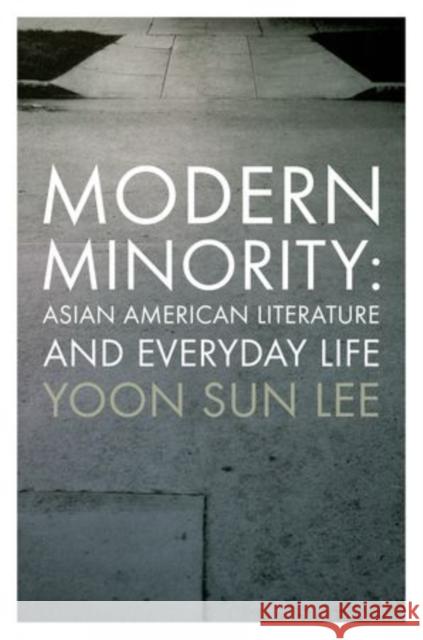Modern Minority: Asian American Literature and Everyday Life » książka
topmenu
Modern Minority: Asian American Literature and Everyday Life
ISBN-13: 9780199915835 / Angielski / Twarda / 2013 / 240 str.
Since the late nineteenth century, the concept of everyday life has been the subject of increasing scrutiny. The familiar events, routine actions, and ordinary objects that comprise modernity's daily life have been studied by Georg Simmel, Sigmund Freud, Henri Lefebvre, Michel de Certeau, and others. Informed by this theoretical tradition, Modern Minority argues that Asian American literary realism is defined by a focus on the everyday, which allows Asian Americans to comprehend their minority status and negotiate their historically vexed place in modern American culture.
Yoon Sun Lee's study offers new ways to think about an expansive range of literature. Issues of scale, size, and frequency emerge as the key to reading for the everyday. Questions of animation and of surface also become crucial to thinking about everyday forms. In its first section, novels by Younghill Kang and Carlos Bulosan precede letters and diaries depicting the internment of Japanese Americans during World War II. Despite their differences, these texts rely on repetition and focus on ordinary objects to overcome as well as to express feelings of meaningless and stagnation wrought by industrialization, racism, and war. Modern Minority's subsequent section features memoirs by Jade Snow Wong and Maxine Hong Kingston, along with fiction by Joy Kogawa, Nora Okja Keller, Ha Jin, Lan Samantha Chang, and others. These works expose the everyday's shifting role in relation to concepts such as ethnic history, self-knowledge, and thingness. The final section traces the everyday as it underpins notions of political modernity and at times undermines a sense of Asian American identity in writing by Chang-rae Lee, Frank Chin, Lois-Ann Yamanaka, and Jhumpa Lahiri. Marked by attentive close readings and creative juxtapositions, Modern Minority situates Asian American writing not only in relation to ethnicity or nationhood, but within the context of a modern sense of time.










